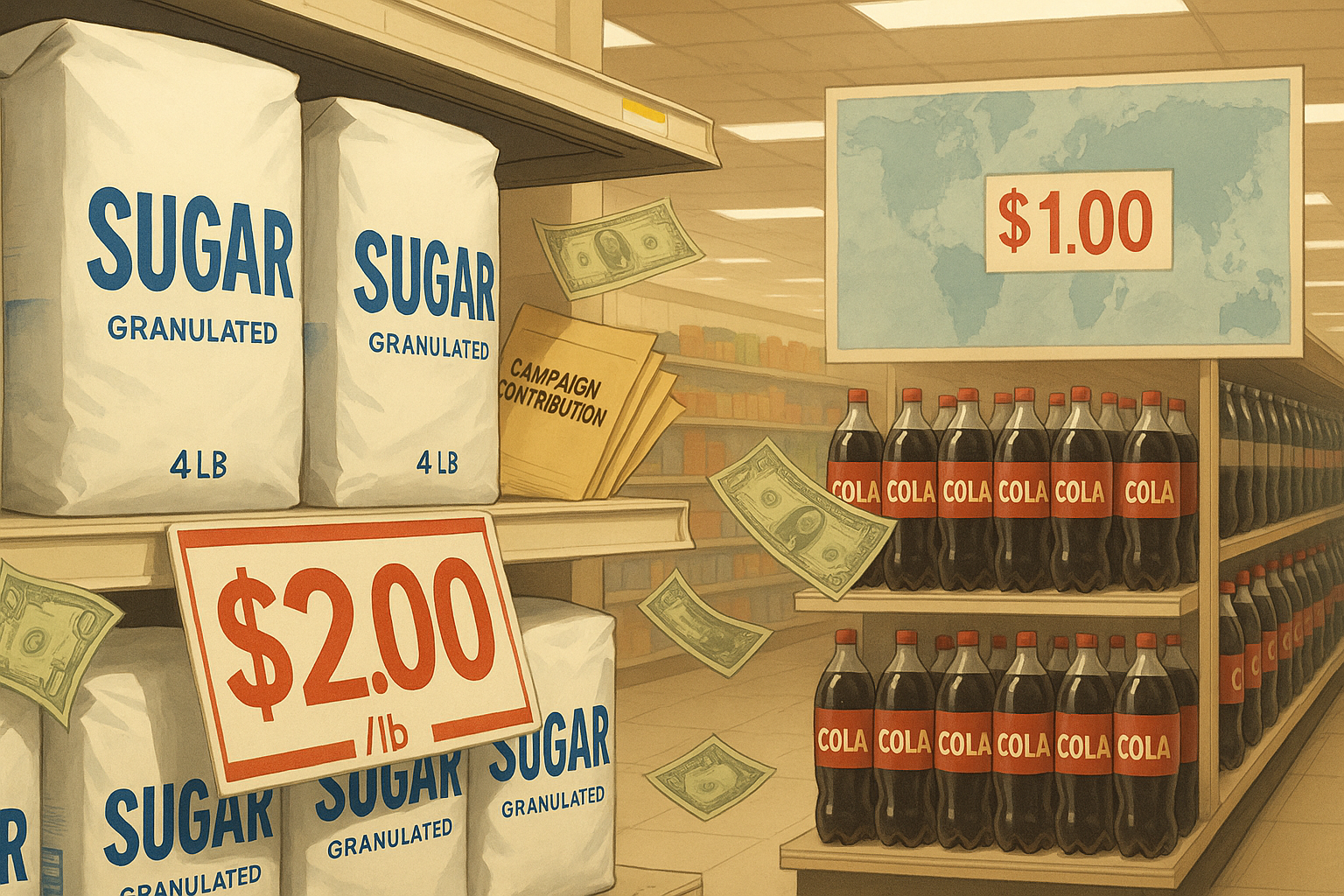You've probably never thought much about sugar tariffs. I hadn't either until I spent three months investigating America's food pricing policies back in 2018. What I found was, well... let's just say it explains a lot about your grocery bill.
Ever notice how Coca-Cola tastes different in Mexico? That's not your imagination playing tricks. It's economics.
The story begins shortly after Castro's revolution in Cuba. America, suddenly anxious about its sugar supply, erected protective tariffs that have survived—virtually unchanged—for more than six decades. The result is painfully simple: we pay roughly twice what the rest of the world does for sugar.
Let that sink in.
Most Americans don't buy raw sugar in bulk, so this price difference hides in plain sight. But it's there—lurking in your cookies, cereals, candy bars, and just about everything else with a sweet taste. It's a stealth tax that nobody voted for but everyone pays.
"The sugar program is possibly the most perfect example of how special interests capture the political process," Dr. Eleanor Mathison, agricultural economist at Cornell, told me during a particularly candid interview. "It benefits maybe 4,500 sugar producers at the expense of 330 million consumers."
The market, being cleverer than politicians (isn't it always?), found a workaround. American food manufacturers, faced with artificially expensive sugar and dirt-cheap subsidized corn, made the obvious switch to high fructose corn syrup. And there you have it—the reason your Mexican Coke with real sugar tastes noticeably different from the American version.
I've spoken with executives at three major food companies who confirmed they'd prefer using real sugar but can't justify the added expense. None would go on record, of course. That's how Washington works.
The irony here is just... perfect. These tariffs were supposedly created to boost domestic sugar production. Did that happen? Nope. What we got instead was a protected class of sugar producers who've mastered the art of political self-preservation.
Look, this is basic economics. When you shield any industry from global competition, you rarely get innovation or efficiency improvements. What you get is complacency and—my favorite term from political science—rent-seeking behavior.
The sugar lobby spends millions annually to preserve their sweet deal. (Sorry for the pun. Couldn't resist.)
Having tracked campaign contributions in agricultural sectors for nearly a decade, I can tell you the sugar industry's political giving is surgical in its precision. They target key committee members who oversee agricultural policy, regardless of party affiliation. It's masterful, really.
This system survives despite theoretical opposition from both parties. Republicans who preach free markets and Democrats concerned about regressive taxation affecting lower-income households should unite against this policy.
Yet here we are.
Studies suggest this program costs consumers billions every year. Billions! That's not chump change—it's real money extracted from your wallet in such small increments you never notice.
(And yes, I've tried explaining this at dinner parties. People's eyes glaze over faster than a Krispy Kreme donut.)
There's a broader lesson here for today's heated tariff debates. When politicians promise that trade barriers will revitalize domestic industries without consumers feeling the pinch... well, remember the sugar story.
The promised domestic production renaissance rarely materializes. Instead, costs become so deeply embedded in the system that we forget they exist at all.
So next time you're vacationing south of the border and that Coca-Cola tastes unusually satisfying, you're not imagining things. You're just temporarily escaping America's longest-running protectionist experiment—a sixty-year case study in how concentrated political influence consistently trumps economic common sense.
I guess if you want to preserve economically indefensible policies, the secret ingredient isn't sugar at all. It's campaign contributions, served regularly to just the right politicians.
